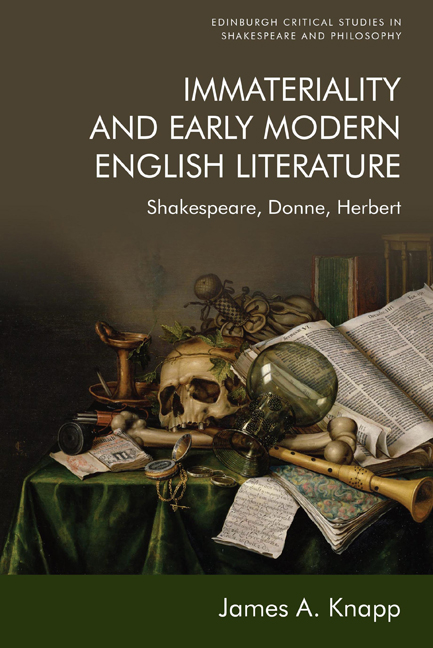4 - ‘’Tis insensible, then?’: Concept and Action in I Henry IV
Published online by Cambridge University Press: 10 October 2020
Summary
Honour! tut, a breath:
There's no such thing, in nature: a mere term
Invented to awe fools.
Ben Jonson, Volpone
In the previous chapter, we examined a character almost allergic to action. For the first half of the play Richard deferred authority to a God of his imagination, one who would bring armies of angels to fight in his name. Rousing invocations of his divine authority are the closest he comes to mounting a defence against rebellion. Even Richard's closest allies must remind him to raise an actual army to resist the encroaching Bolingbroke. Once defeated by the loss of supporters against the strength of Bolingbroke's insurgence, Richard's sense of action continues to be restrained to the level of utterance, as he insists on recasting the calamity of his fall in terms of his own victimisation. His only staged action – with perhaps the exception of his shattering of the mirror in the deposition – comes too late, as he rises up against his murderers just before his own death. Lack of action leads to Richard's downfall, but action itself leads to death, a reality foreshadowed by Richard's own conclusion on the death of kings, that they are ‘all murdered’. While Richard is unable to bring his image of divine kingship into being through his words, he is able to strip bare the political events of the play, exposing the mechanisms of power for what they are.
In the play that follows in the historical narrative, Shakespeare can be seen to explore precisely the opposite dynamic. If action was secondary to articulation in Richard II, I Henry IV explores a case in which action determines conception, and the concept at question is once more the very identity and existence of the title character. The question of genre is again central, for if Richard II is at least in part a tragedy, I Henry IV is partly comedy. In an influential description of I Henry IV Cleanth Brooks and Robert Heilman describe the play as ‘one of the wisest and fullest commentaries on human action possible [in] the comic mode’.
- Type
- Chapter
- Information
- Immateriality and Early Modern English LiteratureShakespeare, Donne, Herbert, pp. 124 - 156Publisher: Edinburgh University PressPrint publication year: 2020



